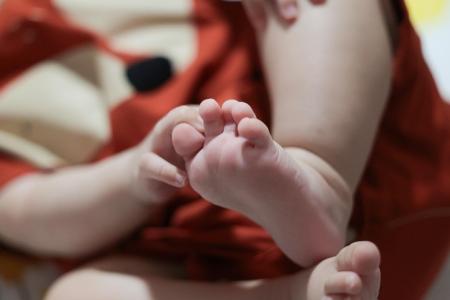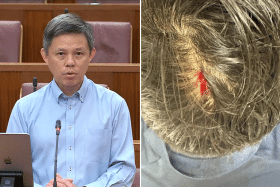7 stateless children under age 12; 13 others aged 12-18
There were seven stateless children under the age of 12 in Singapore, and another 13 between the ages of 12 and 18 as at Dec 31, 2023.
They constituted 2.3 per cent of the total number of stateless individuals here. While their circumstances vary, one reason for their statelessness is that they were born in Singapore to foreign parents who did not obtain citizenship of their country for their children.
Minister of Home Affairs K. Shanmugam said this in a written parliamentary reply on Oct 15, following Nominated MP Razwana Begum Abdul Rahim’s questions on the number of stateless children, and the support available to them.
A stateless individual is not recognised as a citizen of any country and has no nationality.
Associate Professor Razwana’s questions come after The Straits Times published an article in September on stateless individuals living in Singapore.
One of them was 25-year-old Ricqo Rafiezuwan, who was born in Singapore but has never left the country nor attended school.
Mr Rafiezuwan is among 853 stateless people living here as at Dec 31, 2023. As a stateless adult in Singapore who is not a permanent resident (PR), he is not entitled to subsidised education, healthcare and housing.
In his written reply to Prof Razwana, Mr Shanmugam said that like many other countries, Singapore does not automatically grant citizenship to children born here.
He said applications for Singapore citizenship are evaluated based on a range of criteria, including the conduct and contributions of the applicant, links to Singapore such as if they have family members who are Singaporeans, and how long they have been here.
The circumstances under which the person became stateless would also be taken into consideration, the minister added.
“It is the responsibility of the parents or legal guardians to take care of the child’s well-being, including obtaining citizenship for their child.
“However, if a child or young person has no parent or caregiver willing or able to provide care or guardianship in Singapore, they may be provided with statutory protection under the Children and Young Persons Act,” said the minister.
In terms of access to healthcare, education and housing, stateless individuals who are PRs are treated no differently from other PRs, he added.
Stateless persons who are not PRs can also access several services.
For instance, stateless children and young persons under the state’s care can get healthcare subsidies through the Medical Fee Exemption Card, which covers them for standard medical and hospitalisation treatment at government or restructured hospitals and polyclinics.
They can also approach the healthcare institutions’ medical social workers, said Mr Shanmugam.
Stateless students may also be enrolled in mainstream schools and tertiary institutions here if they meet the admission criteria, he said, adding that they can seek advice from social service agencies on the financial assistance available to them.
However, stateless individuals who are not PRs cannot buy or rent a flat from the Housing Board. Instead, they can live in an HDB flat as an occupier if they are part of a Singaporean or PR family that is eligible to buy or rent a flat.
“For those who face genuine housing difficulties and have no other housing options, HDB will work with the relevant agencies like Ministry of Social and Family Development to assess how best to assist them,” said Mr Shanmugam.
Get The New Paper on your phone with the free TNP app. Download from the Apple App Store or Google Play Store now


